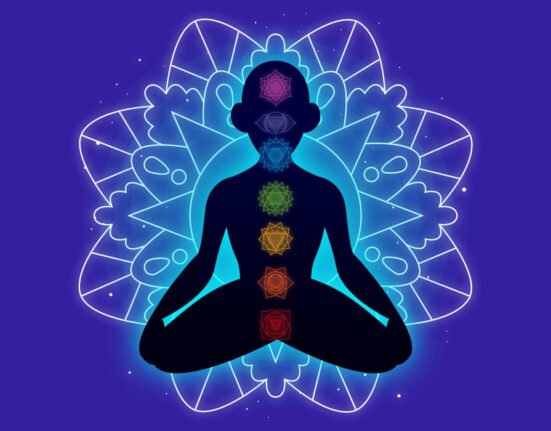In search of happiness, we often emphasise achieving the perfect outcome: a happy ending. It is assumed that a happy ending always guarantees lasting joy. However, such a relentless chase for happiness can lead to disappointment and even cause one to overlook opportunities for true contentment. But the biggest hurdle is how one can redirect one’s attention from the distant goal to appreciating the present moment.
Read More: The Neuroscience of Happiness
Why are we Attracted to happy endings?
From a young age, we are all introduced to stories that culminate in a “happily ever after.” This narrative reinforces the belief that happiness is a destination rather than a journey. Our ideal home, perfect partner, and dream job symbolise our happy endings, and we set high expectations for ourselves. Yet, as The National Interest highlights, this fixation on happy endings can distort our perception of experiences, leading us to undervalue the journey itself.
Read More: Cognitive Biases in Everyday Life
The Psychological Trap
Experiences that conclude on a positive note are preferred by our brains; this is referred to as the “peak-end rule.” According to research cited by Psychology Today, we tend to forget the whole experience and instead recall the climax and ending of events. This prejudice may cause us to ignore the importance of the process and base our decisions only on expected happy endings.
Personal Reflections: A Case of Chasing Success
Consider the story of Jane, a professional who worked for years to achieve career goals because she thought each promotion would make her happy for the rest of her life. She sensed an underlying emptiness despite her accomplishments. She didn’t find true contentment until she turned her attention to everyday pleasures, such as taking up hobbies and fostering relationships. Jane’s experience echoes Tiny Buddha’s observations, which highlight the value of accepting life’s flaws rather than striving for an idealised form of happiness.
Read More: 9 Key Teachings of Budhha that will help you gain Inner peace
The Cultural Conditioning
Success and happiness are frequently equated by society, which feeds the cycle of never-ending striving. This is further supported by media and advertising, which present idealised lives and imply that obtaining happiness can be achieved through wealth or prestige. According to The Times of India, this leads to a “lack mindset,” in which people feel unfulfilled all the time and are constantly looking for the next accomplishment or acquisition to make up for it.
Embracing the Present
It’s crucial to develop presence and mindfulness to escape the cycle of seeking happy endings. Instead of postponing happiness to future accomplishments, we can find joy in ordinary moments by keeping our attention on the present. This strategy is in line with the advice, which holds that living in the moment and enjoying the journey are the keys to finding true fulfilment.
Redefining Success and Happiness
Rethinking what success and happiness mean can result in more long-lasting well-being. Internal fulfilment and personal development can be used as a substitute for external achievements as a gauge of happiness. In support of this viewpoint, the value of enjoying the process rather than obsessing over the result.
Practical Steps to Shift Focus
Growth and learning are promoted by concentrating on process-oriented objectives rather than just results. Rather than aiming for a particular goal, try to learn new things or get better over time. This way of thinking makes progress more satisfying by lowering stress and boosting motivation. Resilience and adaptability are fostered in many facets of life when learning takes precedence over outcomes.
Being grateful improves one’s awareness of the present moment and general well-being. Recognising the good things in life regularly promotes happiness and lowers stress. Deep breathing exercises and meditation are examples of mindfulness practices that help people become more noted in the here and now while reducing future-focused anxiety. These behaviours enhance day-to-day living and foster emotional stability.
Reducing exposure to idealised media helps people accept themselves and avoid making unjustified comparisons. Recognising media distortions helps maintain a balanced perspective on success and happiness. A strong sense of fulfilment and purpose is also fostered by considering one’s values and coordinating daily activities with them, which enhances the significance and satisfaction of life.
Conclusion
We may deviate from the happiness we seek in the pursuit of happy endings. We can become more open to true contentment by redefining our ideas of success and focusing on the here and now. Jane learned that accepting life’s flaws and finding joy in the little things in life can result in a more satisfying life, and Tiny Buddha’s observations support this idea. Remember that happiness is a journey we take every day, not a far-off place. By enjoying every step, we can be happy not only at the conclusion but all along the way.
References +
- Gautam, Y. (2023, September 4). How to stop chasing happiness and start being happy in reality. The Times of India. https://timesofindia.indiatimes.com/life-style/relationships/love-sex/how-to-stop-chasing-happiness-and-start-being-happy-in-reality/articleshow/103364812.cms
- Abpp, S. K. W. P. (2012, September 8). A happy ending makes (almost) anything more pleasurable. Psychology Today. https://www.psychologytoday.com/us/blog/fulfillment-any-age/201209/happiness-it-s-all-about-the-ending?utm_source=chatgpt.com
- Migrate. (2024, November 25). Our Obsession with Happy Endings Doesn’t Make Us Happier. The National Interest. https://nationalinterest.org/blog/reboot/our-obsession-happy-endings-doesnt-make-us-happier-171832
FAQs
1. Why do I constantly chase happy endings?
From childhood, we’re conditioned to seek “happily ever after,” believing happiness is a final goal. This mindset, reinforced by media, leads us to overlook joy in the present moments of life.
2. How does my brain trick me into focusing on happy endings?
The “peak-end rule” makes me remember only the climax and off experiences. This bias causes me to ignore the journey, basing my happiness on the outcome rather than appreciating the process itself.
3. Why do I feel empty even after achieving success?
Society links success to happiness, making me chase external achievements. But true fulfilment comes from daily joys, hobbies, and relationships—shifting focus from results to he journey can bring lasting contentment.
4. How can I stop feeling unfulfilled and enjoy the present?
Practising gratitude, mindfulness, and reducing media influence help me stay present. Aligning daily activities with personal values fosters purpose, while embracing life’s imperfections allows me to experience joy in small moments.
5. What practical steps can I take to break free from this mindset?
Focusing on growth rather than results, setting process-oriented goals, practising mindfulness, and limiting exposure to unrealistic media expectations help me shift my perspective and find happiness in everyday experiences.













Leave feedback about this